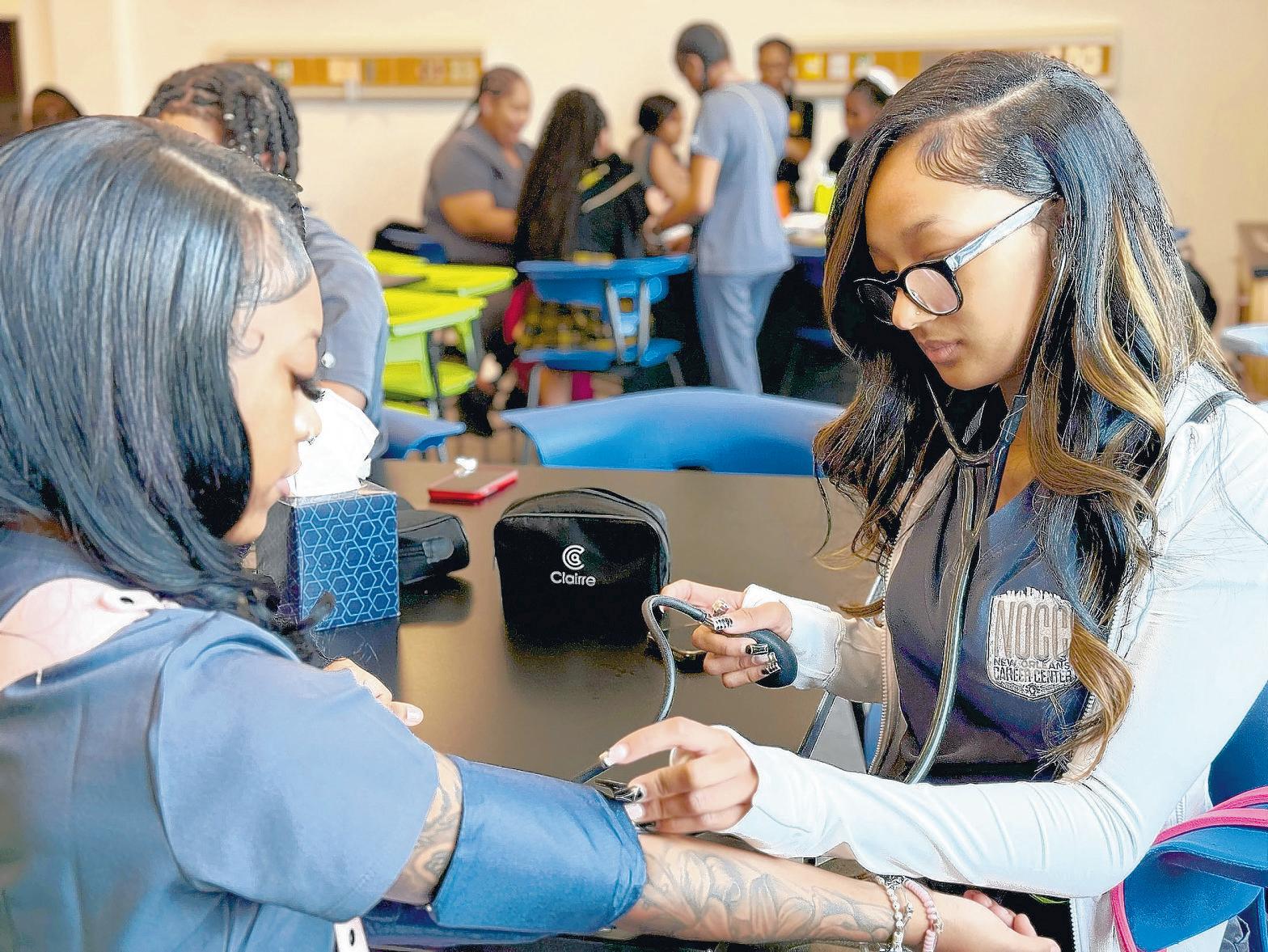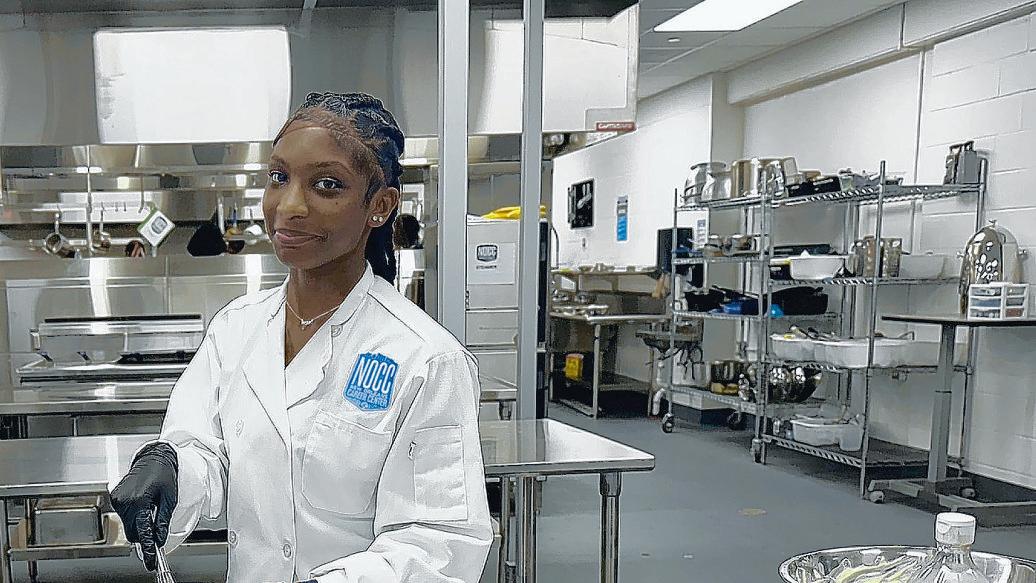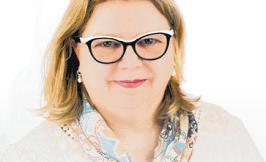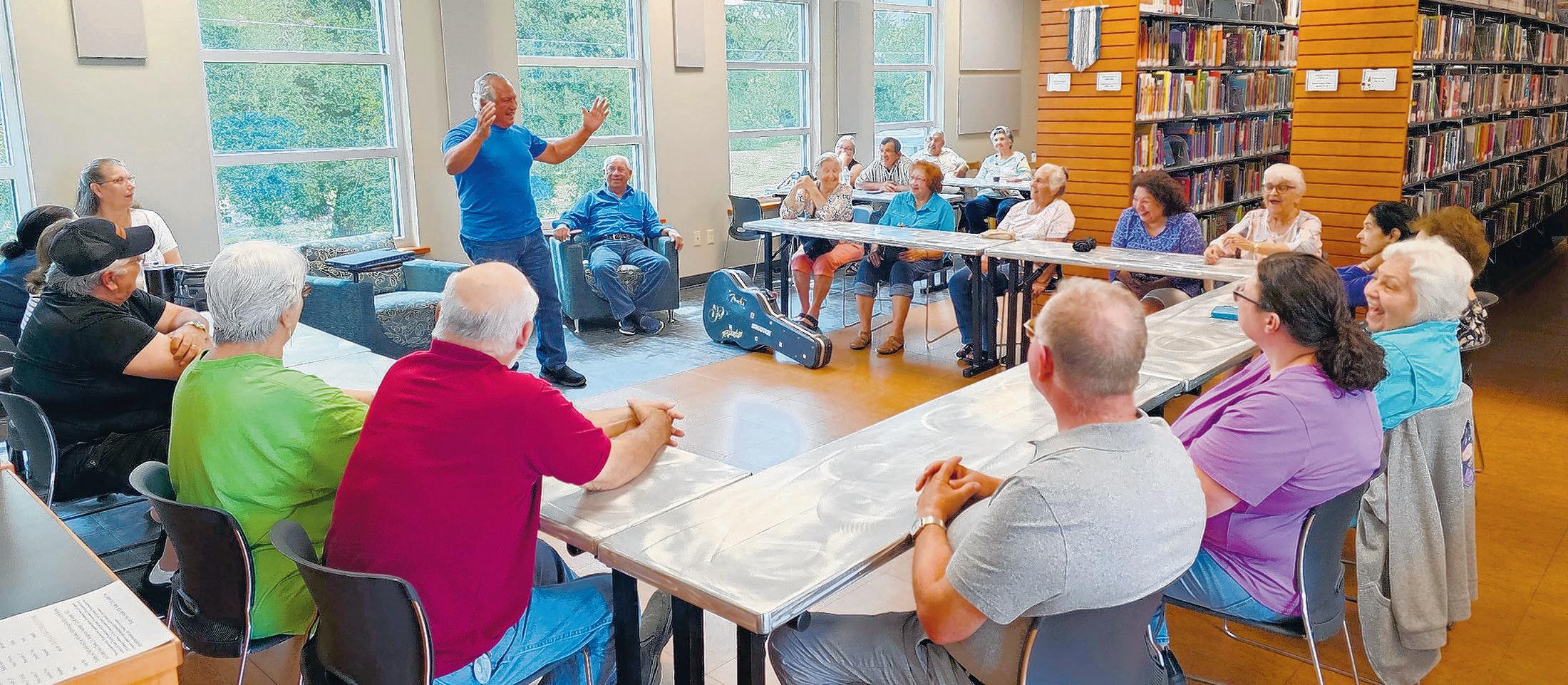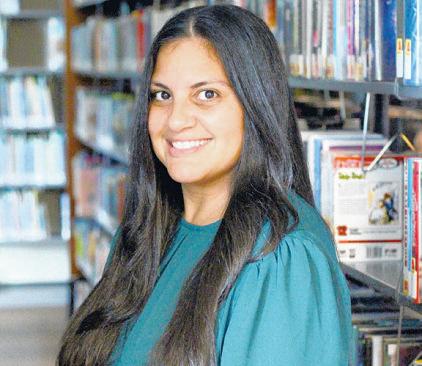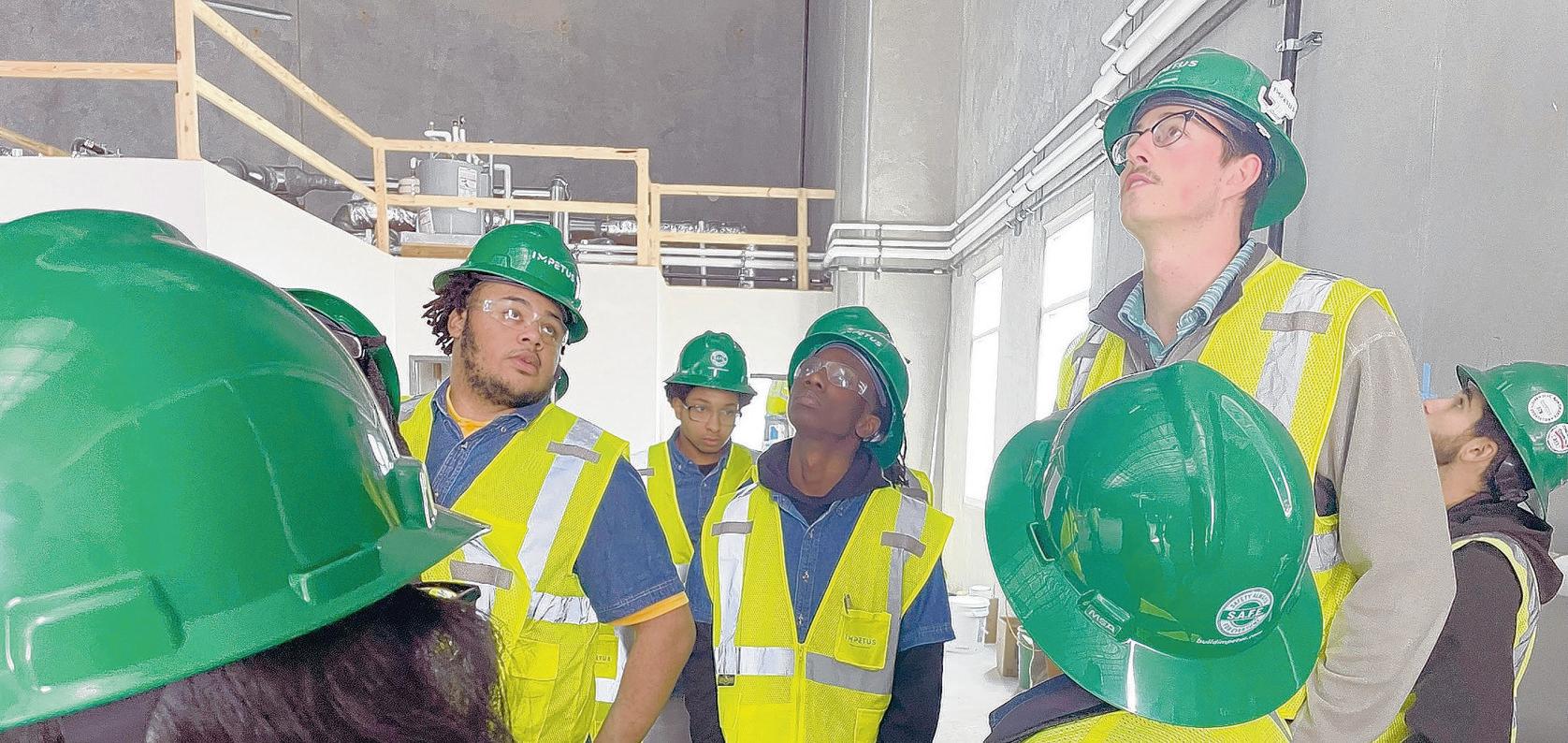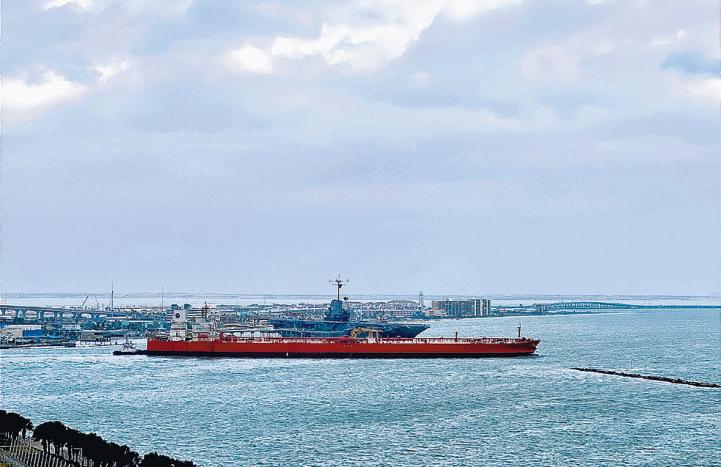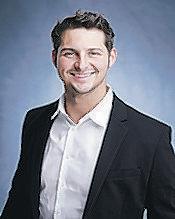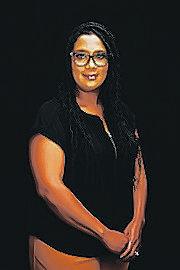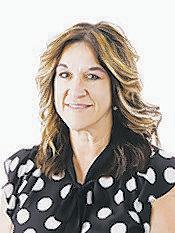Health care trainees Janeen Preston from John F.
like bloodpressure.The
PREPARINGFOR SUCCESS
N.O. Career Center’s tuition-free program includes awide varietyofoptions
BY EVAJACOB BARKOFF
Contributing writer
Te’Mon Crawford’s interest in acareer as an electrician mightbetraced back to 2021, when he saw Entergy employees making repairs to bring back electricity after HurricaneIda.
“I saw what Entergy was doing to help restore power,and Ithought that thiswas something Icould learn more about,” said Crawford, agraduate of Warren Easton High School.
“I felt by learning about electricity, Iwould be able to make adifferenceto help the community.”
Crawford willreceive his electrical license next May thanks to aprogramoffered by the New Orleans Career Center.
The nonprofit NOCC, at 1331 Kerlerec St., New Orleans, opened inthe fall of 2018, offering tuition-free career and technical education to highschool students and adults.
The firstyear, twoprograms wereoffered: medical assisting and engineering/manufacturing, with134 trainees enrolled.
Today,there are nearly threetimes that number.They’rehigh school studentsand adults who have enrolled in more thana dozen programs to learn culinary arts and hospitality management, patient care technician, licensed practical nursing, digital media, building tradesand pharmacy tech.
Amy Ferguson is an independent con-
Career Center’skitchen.
sultant. NOCC is aclient.
“The high school traineesare from25 NewOrleans high schools andattend half-dayevery weekday,morning or afternoon, forthe entire school year,” Fergusonsaid. “Adult training is also held every weekday, but hours vary by the career path they have chosen.Training is offered throughout the year,and the certificatevaries dependingonthe area of study.”
Care andkindness
Amarie Jones’sister,Thayri, was born with aheartmurmur.While her sister was being treated by the doctors and nurses at Children’sHospital, Jones said she was moved by thecarethe staffgaveher sister and the kindness that was showntoher family
“It was so hard to watchmysistergo through this and especially before and after her operation,” said Jones, who is
studying in NOCC’slicensedpractical nurse program. “Thestaff at the hospital were amazing…itwas then Ithought about going into nursing.
“I was very nervous when Istarted at NOCC, butmyinstructors have encouragedmesomuch. They are giving me the confidencetomove forward with my studies.”
Afterher studies, she’slooking to the future
“When Ibecome anurse, Iwant to give my patients thesamekind of care and comfort like the nurses who took care of my sister,” Jones said.
Carlin Jacobs is NOCC’schief program officer.Heattributesthe increaseinenrollment to the additional programs available and to word-of-mouth.
“Our high school students are talkingto theirfriends about what they are studying
ä See CAREER, page 3G
If you would no longer like
Bigships and tugboats
Some weeksare strange ones. This last one would fall into that category for me. My week started at awonderful, restful and inspiring women’sspirituality and creativity retreat. From there, Icame home to aflurry of activity.Now that I’m writing three columns a week, rather than the one aweek that I’ve writtenfor more than 20 years, the rhythm of my week has changed. For more than 20 years, I’ve simply lived my life and thought about how to connect its dots and comeupwith something meaningful for my Sunday column. Now for my Tuesday columns, Igoout and do something —like taking adeep dive into growing grass at Tiger Stadium or rowing Bayou St. John with the New Orleans Rowing Club. For my Thursday column, Ihave to cook anew recipe each week and talk to the person who suggested the recipe as his or her signature dish (like an incredible leek lasagna recipe or Cobb Barksdale’s mother’sPecan Sandies) before writing the column.
Once home from the retreat, Ihad to get things done, dishes baked, columns written and stories edited before catching a flight to Corpus Christi, Texas, Tuesday evening for awomen’s conference on Wednesday.Fortunately,inCorpus Christi, my hotel room had an incredible view of the harbor.For afew minutesearly Wednesday morning, Ihad timetocollect myself, sit in quiet and watch giant ships coming in and out.
Water is my happy place. Iespecially love being on and watching boats. Sitting in the cool of that morning, Icouldn’thelp but marvel at aseries of tugboats guiding ships, particularly the tiny tugboat helping agiant orange ship out of the dock and harbor
Closer to home, I’ve also marveled at tug boats and giant barges on the Mississippi River in Baton Rouge and New Orleans.
Maybe it wasbecause Ihad a fewminutestomyself thatmorning in Corpus Christi, but the metaphor of thetugboat hit me powerfully.For big things to happenand getwhere theyneed to be,smaller things have to guide or push the big things along—all the while doing incredible,unseen work beneaththe surface. To rephrase achildhood book, it’s like the little tugboat that could.
Iknewwho to calltoget the lowdown on thetugboat’s role in the operation Iwatched Wednesday. My newfriend, courtesy of the PostcardProject,RickJordanisa ship captain. Isenthim a
ä See RISHER, page 3G
NOCC culinaryartsand hospitality management trainee Aubria Robinson works in the
PROVIDED PHOTOS
KennedyHigh School and Laila Smith of Warren Easton learntotakevital signs
NewOrleans Career Center,at1331 Kerlerec St.,New Orleans, opened in thefall of 2018, offering tuitionfree career andtechnical education tohigh school students and adults.
Dulacgatherings: Rich life storiessharedinCajun French
BY SAMKARLIN Staff writer
For much of the past year,a group of tribal elders have gathered at thelibrary inDulac, a storied fishing community south of Houma, to tell stories.People from bayou towns and beyond bring food, play music and talk about theway of life that has made the bayous apart of Louisiana’shistory.And theyspeak inFrench, passing down afading tradition in coastal Louisiana.
Candace Chauvin, thebranch managerofthe library,helps organize the gatherings, alongwith PierreSolet,KatieJolly, Corine Paulkand others.
Chauvin spoke to theTimesPicayune aboutthe effort to preserve the bayou culture,whichis being threatened by natural disasters,coastal erosion and the insurance crisis Whydid you all decide it wasimportant
eldersaspace to gather outside the scope of awedding or funeral where they can really speak in French and visit.
Afew of our other community membersspread the word, and we’ve consistentlyhad about20 people at everyone of our events We host these gathering every three weeks. People bring food and cook. One gentlemanbrings his guitar.
Did you speak French before this began? No. That was why it was important to me to listen to our eldersspeak French. Idon’t speak French. My co-worker Katie (Jolly)understands everything. We always have atranslatorwho tells all the non-Frenchspeaking people what’sbeing said.
What are the topics?
to startholding these gatherings?
We know alot of peopleour age in our30s —and there’snot a ton of us that speak French. We really had amindset of preservation. We also wanted to give our
Maureen had the ideaofgathering and talking about general things. Our group leader now,Pierre Solet, chooses the topic for the group. Katie and
Iatthe library call thepeople on our list and tell them what thetopic is. Some of our topics have included medicine, recipes,how peoplemake their own toys.Wetalkedabout the hurricanes already.I think we jinxed ourselves.
Bayou communities have dealt with alot: hurricanes, coastal erosion, the insurance crisis. How does thisworkintersect with those challenges? This program is very interesting because it really intersects with all the things the library does.
Every time we can gather 30 adults in one place, we can pass along any information they need to know withFEMA, housing, or programs that come up. It’sa way to spread the word. It’sa way for us to let them know that we are here as aresource if people need other things.
Alot of people come to the French program, and by spread-
ing the word, it’sactually reached people who didn’tuse thelibrary before. It’s reallynice we’re able to provide the community with info they need to know It is always apleasure to know what they think about and what they feel the future will hold. What else should we know about this?
This is one of our most fun programs. We really enjoy having theeldersinhereand listening to their stories. Everyone of these gatherings we learn so much about them. Their lives have been so rich. We learn so much about how Dulac used to be and how these other communities used to be. We have people who come from Chauvin, from Pointe Aux Chenes. We have areally diverse group. They have such awealth of knowledge. Answers have been edited for length and clarity
KENYATTA
“For nearly acentury, theU.S. Gulf Coasthas been centraltoShell’s business and theU.S. energy supply. By investinginour Louisiana assets,we arelowering emissions and supplying thenextgeneration of energy.”
EMMALEWIS
ShellinLouisiana is shapingthe future of energy. With thousands of Shell men andwomen across thestate,weare workingevery daytoreduce emissions,while increasing efficiency in our operations
Our tomorrowdepends on whatwedotoday. Together,weare powering progress forabrighterfuture. Louisiana is where we live and we’reproud to call it home
PROVIDED PHOTOS
Agroup of tribal elders and others gatherinDulac to tell stories in French and passdowncultural heritage as part of amonthly meeting at the locallibrary.
CandaceChauvin hashelped organize amonthly gathering of tribal eldersinDulac to tell stories in French and pass down cultural heritage.
and that is helping to spread the word,” Jacobs said. “Our completion rateis93% among high school students. And our instructors are industry professionalsintheir fields whowetrain to be instructors.”
Practicalexperience
This will be the first year LeeStevenson willserve as an instructor at NOCC. An electrician by trade for 10 years, he will teach a core curriculum in building trades.
“This is abase level course for students in all areas of construction including identifying the types of tools, safety rules, names of equipmentand trade terms,”explained Stevenson, ajunior at the University of New Orleansmajoring in electrical engineering.
“I look forward to watching the students grow in their knowledge in whatever area of building trades they have an interest in while sharing my own knowledge and job experience. Iprayed foranopportunity like this.”
Ferguson said alltrainees attend NOCC free of charge thanks to support from members of industries, corporations, foundations and individuals throughout the New Orleans area including Acadian Ambulance, Boh Brothers, International Brotherhood of Electrical Workers Union 130, the Link Restaurant Group,Ochsner Health, LCMC Health,the
Omni Royal Orleans, Lil Dizzy’s,The Roosevelt,the Kern Family Foundation Café Reconcile and Pro Bono Publico.
There is abig need in the community,Jacobs said, for trainees to enroll in the programs at NOCC.
“Weknowthereare New Orleanianswhose lives could be changed by what NOCC offers,” Jacobs said.
“They will receivehigh quality training programs andwillbeequippedwith the technical skills, workplace knowledge and the professional networks to succeed.
“Weare hyper-focused on providing students the experience they need for their chosen career path while meeting theneedsofthe community.”
RISHER
Continued from page1G
photo of the small tugboat and the ship. He explained the difference between the tugboats from “back in the day” to the one in my photograph, which is called a tractor tug.
“Tractor tugs have been described to look almost like afootball. The pilot is rightinthe middle,” he said, explaining atractor tug’smultidirectional propulsion system used to pull or push vessels. “It takes special skills to drive atractor tug. They can generate alot of power and move in any direction the pilot wants them to. The old tugboats would get beside aship and push. These can force that ship to move in any direction. That tractor tug could become that ship’sengine and rudder.”
The tractor tugs are used to getting giant ships on and off the dock and to guide them through the harbor.Once the ships are
headed toward the sea, they’reontheir own.
Tugboats are never fast. Compared to the equine world, there are thoroughbredhorses and workhorses. Tugboats are workhorses.
For the most part, they never travel to exotic locations.Theydon’tcarry the cargo.They don’tsail the high seas.Without tugboats, ships and docks wouldn’twork so well. Systemswould break down. Precious cargo wouldn’tleaveorarrive on time.Tugboats have their rolesand othervessels havetheirs.
However,inthe world we live in, we all get the chance to play avariety of roles. Sometimes we’rethe big ships with all the glory the high seas offer,quietly assisted by tugboats in the harbor
At other times, we are the tugboats. We need to do the hard work to assist another get to where he or she is going.
Email JanRisheratjan. risher@theadvocate com.
We cantalkMedicarewhere youwant
Ourpooloflocal licensed salesagentsmakes it easy to find alistening ear, a helping hand andaknowledgeable voice. We’llconnect youwiththe Medicare Advantageplaninfoyou need.Plus, Humana goes theextra mile to bringyou even more than youexpect. We call it human care
Wykeitha Dunbar 225-494-9929 (TTY: 711) wdunbar@humana.com
Elizabeth Smith 985-300-3336 (TTY: 711) esmith126@humana.com
Amorehuman way to healthcare®
At Humana, it is important youare treatedfairly. Humana Inc. andits subsidiaries comply with applicable federalcivil rights laws anddonot discriminate on thebasis of race,color,nationalorigin, age, disability,sex,sexualorientation,gender, gender identity,ancestry, ethnicity,marital status,religionorlanguage.English: ATTENTION: If youdonot speakEnglish,languageassistanceservices, free of charge,are available to you. Call 877-320-1235 (TTY:711). Español (Spanish): ATENCIÓN:Si hablaespañol,tieneasudisposiciónserviciosgratuitos de asistencia lingüística Llameal 877-320-1235 (TTY:711). 繁體中文(Chinese):注意:如果您使用繁體中文,您 可以免費獲得語言援助服務。請致電877‑320‑1235(聽障專線:711)。
STAFF PHOTO BY JANRISHER
Atractor tug helps abig ship out tosea from thePortof Corpus Christi, Texas.
